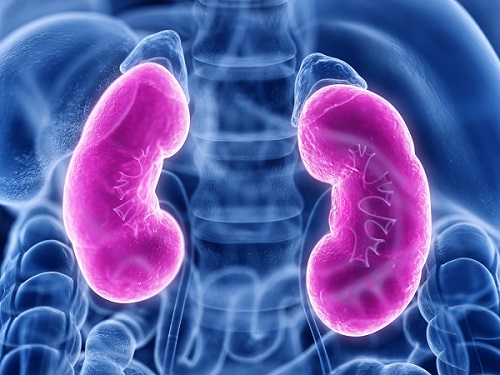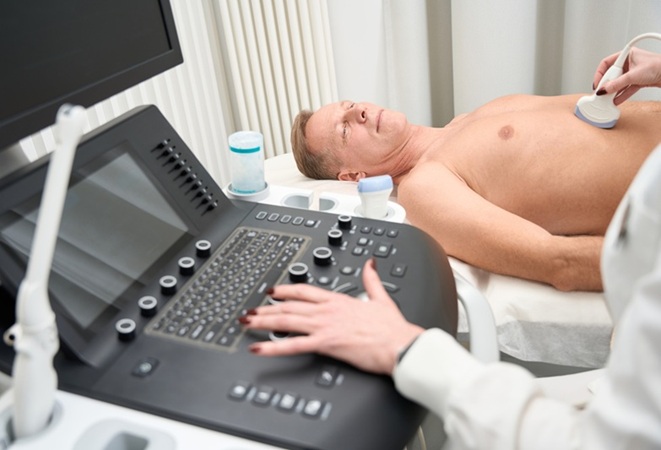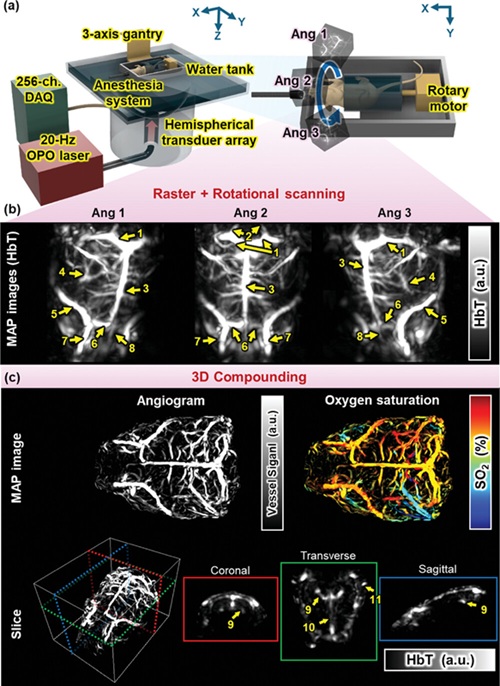Radiology Test Non-Invasively Diagnoses Immune Checkpoint Inhibitor-Associated AKI
|
By MedImaging International staff writers Posted on 06 Sep 2024 |

Immune checkpoint inhibitors (ICIs) are a class of immunotherapy that has transformed cancer treatment but can trigger autoimmune reactions like immune checkpoint inhibitor-associated acute kidney injury (ICI-AKI). Distinguishing ICI-AKI from other causes of acute kidney injury (AKI), common among cancer patients, often requires a kidney biopsy, which carries bleeding risks for some patients. In a new study, researchers explored the use of F18-FDG PET-CTs, a nuclear imaging technique, to identify ICI-AKI without invasive biopsies. Their findings show that ICI-AKI patients exhibit significantly higher levels of radioactively labeled glucose in the kidneys—indicative of inflammation—compared to those with AKI from other causes. This suggests that F18-FDG PET-CTs could serve as a non-invasive alternative for diagnosing ICI-AKI.
Historically, kidney biopsies in ICI-AKI cases typically reveal acute interstitial nephritis, triggered by activated T-cells. Current standard procedures require a biopsy to diagnose this condition. However, certain conditions, such as having a single kidney or being on anticoagulants, may preclude safe biopsy, emphasizing the need for non-invasive diagnostic options. Earlier small-scale studies and case reports considered F18-FDG PET-CTs for this purpose but were limited by size, lack of rigorous criteria, and absence of control groups.
In this latest study, researchers at Brigham and Women's Hospital (Boston, MA, USA) aimed to validate the diagnostic utility of F18-FDG PET-CTs for ICI-AKI. They analyzed data from a previous study, focusing on patients who underwent F18-FDG PET-CTs near the time of suspected ICI-AKI diagnosis. They also included two control groups: patients with AKI from non-ICI causes and ICI-treated patients without AKI during a follow-up scan. Eligible patients had F18-FDG PET-CT scans both at baseline and close to the onset of AKI (or during a follow-up period for the second control group). Radiologists evaluated the scans for standardized uptake value (SUV) changes in the renal cortices, an indicator of inflammation and metabolic activity in the kidneys. Results showed a median SUV increase of 57.4% from baseline in ICI-AKI patients, compared to only 8.5% in those with non-ICI AKI and no change in ICI patients without AKI.
The findings published in Journal of Clinical Investigation suggest that F18-FDG PET-CTs could be an effective non-invasive test for ICI-AKI. This method could potentially spare patients from risky biopsies by providing a safer diagnostic alternative, crucial for initiating appropriate treatments like steroids and adjusting ICI therapies. Researchers plan to further validate these findings in a larger, prospective study to confirm the ability of F18-FDG PET-CTs to accurately differentiate ICI-AKI from other AKI causes in patients undergoing ICI treatment.
Related Links:
Brigham and Women's Hospital
Latest Nuclear Medicine News
- Novel PET Imaging Approach Offers Never-Before-Seen View of Neuroinflammation
- Novel Radiotracer Identifies Biomarker for Triple-Negative Breast Cancer
- Innovative PET Imaging Technique to Help Diagnose Neurodegeneration
- New Molecular Imaging Test to Improve Lung Cancer Diagnosis
- Novel PET Technique Visualizes Spinal Cord Injuries to Predict Recovery
- Next-Gen Tau Radiotracers Outperform FDA-Approved Imaging Agents in Detecting Alzheimer’s
- Breakthrough Method Detects Inflammation in Body Using PET Imaging
- Advanced Imaging Reveals Hidden Metastases in High-Risk Prostate Cancer Patients
- Combining Advanced Imaging Technologies Offers Breakthrough in Glioblastoma Treatment
- New Molecular Imaging Agent Accurately Identifies Crucial Cancer Biomarker
- New Scans Light Up Aggressive Tumors for Better Treatment
- AI Stroke Brain Scan Readings Twice as Accurate as Current Method
- AI Analysis of PET/CT Images Predicts Side Effects of Immunotherapy in Lung Cancer
- New Imaging Agent to Drive Step-Change for Brain Cancer Imaging
- Portable PET Scanner to Detect Earliest Stages of Alzheimer’s Disease
- New Immuno-PET Imaging Technique Identifies Glioblastoma Patients Who Would Benefit from Immunotherapy
Channels
Radiography
view channel
AI-Powered Imaging Technique Shows Promise in Evaluating Patients for PCI
Percutaneous coronary intervention (PCI), also known as coronary angioplasty, is a minimally invasive procedure where small metal tubes called stents are inserted into partially blocked coronary arteries... Read more
Higher Chest X-Ray Usage Catches Lung Cancer Earlier and Improves Survival
Lung cancer continues to be the leading cause of cancer-related deaths worldwide. While advanced technologies like CT scanners play a crucial role in detecting lung cancer, more accessible and affordable... Read moreMRI
view channel
Ultra-Powerful MRI Scans Enable Life-Changing Surgery in Treatment-Resistant Epileptic Patients
Approximately 360,000 individuals in the UK suffer from focal epilepsy, a condition in which seizures spread from one part of the brain. Around a third of these patients experience persistent seizures... Read more
AI-Powered MRI Technology Improves Parkinson’s Diagnoses
Current research shows that the accuracy of diagnosing Parkinson’s disease typically ranges from 55% to 78% within the first five years of assessment. This is partly due to the similarities shared by Parkinson’s... Read more
Biparametric MRI Combined with AI Enhances Detection of Clinically Significant Prostate Cancer
Artificial intelligence (AI) technologies are transforming the way medical images are analyzed, offering unprecedented capabilities in quantitatively extracting features that go beyond traditional visual... Read more
First-Of-Its-Kind AI-Driven Brain Imaging Platform to Better Guide Stroke Treatment Options
Each year, approximately 800,000 people in the U.S. experience strokes, with marginalized and minoritized groups being disproportionately affected. Strokes vary in terms of size and location within the... Read moreUltrasound
view channel
Tiny Magnetic Robot Takes 3D Scans from Deep Within Body
Colorectal cancer ranks as one of the leading causes of cancer-related mortality worldwide. However, when detected early, it is highly treatable. Now, a new minimally invasive technique could significantly... Read more
High Resolution Ultrasound Speeds Up Prostate Cancer Diagnosis
Each year, approximately one million prostate cancer biopsies are conducted across Europe, with similar numbers in the USA and around 100,000 in Canada. Most of these biopsies are performed using MRI images... Read more
World's First Wireless, Handheld, Whole-Body Ultrasound with Single PZT Transducer Makes Imaging More Accessible
Ultrasound devices play a vital role in the medical field, routinely used to examine the body's internal tissues and structures. While advancements have steadily improved ultrasound image quality and processing... Read moreGeneral/Advanced Imaging
view channel
AI Model Significantly Enhances Low-Dose CT Capabilities
Lung cancer remains one of the most challenging diseases, making early diagnosis vital for effective treatment. Fortunately, advancements in artificial intelligence (AI) are revolutionizing lung cancer... Read more
Ultra-Low Dose CT Aids Pneumonia Diagnosis in Immunocompromised Patients
Lung infections can be life-threatening for patients with weakened immune systems, making timely diagnosis crucial. While CT scans are considered the gold standard for detecting pneumonia, repeated scans... Read moreImaging IT
view channel
New Google Cloud Medical Imaging Suite Makes Imaging Healthcare Data More Accessible
Medical imaging is a critical tool used to diagnose patients, and there are billions of medical images scanned globally each year. Imaging data accounts for about 90% of all healthcare data1 and, until... Read more
Global AI in Medical Diagnostics Market to Be Driven by Demand for Image Recognition in Radiology
The global artificial intelligence (AI) in medical diagnostics market is expanding with early disease detection being one of its key applications and image recognition becoming a compelling consumer proposition... Read moreIndustry News
view channel
GE HealthCare and NVIDIA Collaboration to Reimagine Diagnostic Imaging
GE HealthCare (Chicago, IL, USA) has entered into a collaboration with NVIDIA (Santa Clara, CA, USA), expanding the existing relationship between the two companies to focus on pioneering innovation in... Read more
Patient-Specific 3D-Printed Phantoms Transform CT Imaging
New research has highlighted how anatomically precise, patient-specific 3D-printed phantoms are proving to be scalable, cost-effective, and efficient tools in the development of new CT scan algorithms... Read more
Siemens and Sectra Collaborate on Enhancing Radiology Workflows
Siemens Healthineers (Forchheim, Germany) and Sectra (Linköping, Sweden) have entered into a collaboration aimed at enhancing radiologists' diagnostic capabilities and, in turn, improving patient care... Read more


















